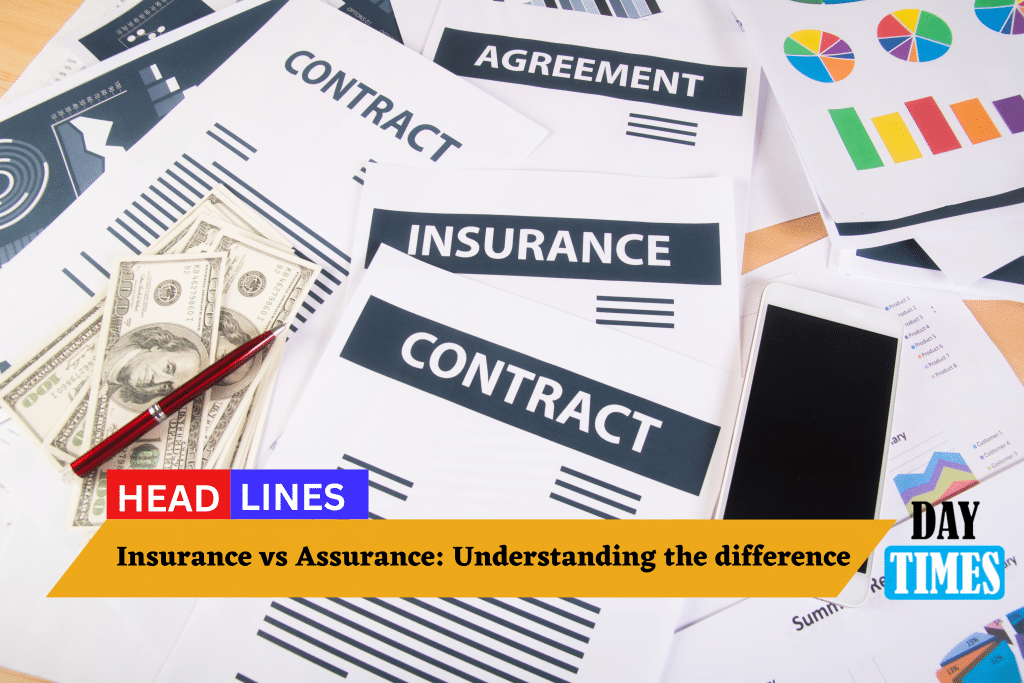In the world of finance and risk management, two terms that often come up are “insurance” and “assurance.” While these terms are sometimes used interchangeably, they actually have distinct meanings and implications. Understanding the difference between insurance and assurance is crucial when it comes to making informed decisions about protecting yourself, your loved ones, and your assets. In this article, we will delve into the definitions, concepts, and key differentiators of insurance and assurance, providing you with a comprehensive understanding of these important financial tools.
Introduction
Before we dive into the specifics of insurance and assurance, let’s first understand the significance of risk management. Life is full of uncertainties, and unexpected events can have a profound impact on our finances and well-being. Risk management involves identifying potential risks and implementing strategies to mitigate or transfer those risks. Insurance and assurance play a vital role in this process, providing individuals and businesses with a safety net against various types of risks.
Definition of Insurance
Insurance is a contract between an individual (or an entity) and an insurance company, wherein the individual agrees to pay a premium in exchange for financial protection against specific risks. In the event of a covered loss or damage, the insurance company compensates the policyholder according to the terms and conditions outlined in the policy. Insurance is designed to protect against unforeseen events that may result in financial loss, such as accidents, natural disasters, or theft.
Types of Insurance
There are several types of insurance available in the market, each catering to different aspects of life and business. Here are some common types of insurance:
Life Insurance
Life insurance provides a payout to beneficiaries in the event of the policyholder’s death. It is intended to provide financial support to the policyholder’s dependents, such as spouse, children, or other family members. Life insurance can help cover funeral expenses, outstanding debts, and replace the lost income of the policyholder.
Health Insurance
Health insurance offers coverage for medical expenses, including doctor visits, hospitalization, medication, and surgical procedures. It helps individuals manage the high costs of healthcare and ensures access to necessary treatments when needed.
Property Insurance
Property insurance protects against damage or loss of physical assets, such as homes, buildings, or personal belongings. It provides financial compensation for repairs, replacement, or rebuilding in the event of covered perils, such as fire, theft, or natural disasters.
Auto Insurance
Auto insurance is mandatory in many countries and provides coverage for vehicles in case of accidents, theft, or damage. It typically includes liability coverage, which pays for injuries or damages caused to others, as well as coverage for repairs or replacement of the insured vehicle.
How Insurance Works
To obtain insurance coverage, individuals or businesses must purchase a policy from an insurance company. The policy outlines the terms, conditions, and coverage details, including the premium amount and deductible. Here’s a brief overview of how insurance works:
Premiums and Deductibles
The policyholder pays a premium, which is the cost of the insurance coverage. Premiums can be paid monthly, quarterly, or annually, depending on the terms of the policy. Additionally, most insurance policies have a deductible, which is the amount the policyholder must pay out of pocket before the insurance company starts covering the costs.
Claims Process
In the event of a covered loss or damage, the policyholder must file a claim with the insurance company. This involves providing necessary documentation, such as incident reports, medical records, or proof of ownership. The insurance company evaluates the claim and, if approved, provides financial compensation to the policyholder according to the terms of the policy.
Risk Assessment
Insurance companies assess risks when determining premium rates. Factors such as the insured individual’s age, health condition, driving record, or location are taken into account. Higher-risk individuals or properties are likely to have higher premiums due to the increased likelihood of filing claims.
Definition of Assurance
Assurance, on the other hand, refers to the act of giving confidence, support, or guarantee. It is often used in the context of business and personal finance. While insurance primarily focuses on providing financial compensation for specific risks, assurance is broader in scope and encompasses various strategies to minimize risks and ensure a stable financial future.
Types of Assurance
Assurance can be categorized into different types, depending on its application. Let’s explore two common forms of assurance:
Assurance in Business
In the business world, assurance involves taking proactive measures to identify and manage risks that could impact the organization’s operations, reputation, or financial stability. This may include internal controls, audits, compliance procedures, and risk management strategies to ensure transparency, accountability, and sustainability.
Personal Assurance
Personal assurance relates to individuals’ efforts to secure their financial future and protect their loved ones from unforeseen circumstances. It involves activities such as saving, investing, retirement planning, and estate planning. Personal assurance aims to build a strong financial foundation and provide peace of mind for individuals and their families.
How Assurance Works
Assurance is an ongoing process that requires continuous attention and effort. Here are two key aspects of how assurance works:
Mitigating Risks
Assurance strategies focus on identifying potential risks and implementing measures to minimize their impact. This could involve diversifying investments, creating emergency funds, acquiring relevant skills and knowledge, or maintaining a healthy lifestyle. By taking proactive steps, individuals and businesses can mitigate the adverse effects of unforeseen events.
Financial Planning
Assurance often involves comprehensive financial planning to achieve long-term goals and financial security. This includes setting financial objectives, creating budgets, managing debt, and ensuring adequate insurance coverage. Through effective financial planning, individuals can navigate uncertainties with confidence and achieve financial well-being.
Key Differences Between Insurance and Assurance
While insurance and assurance share the common goal of managing risks, there are key differences between the two. Here are some important differentiators:
Nature of Risk Coverage
Insurance provides specific coverage against named risks, such as accidents, illnesses, or damages. Assurance, on the other hand, encompasses a broader perspective and aims to build resilience and stability in the face of various risks.
Payout Structure
In insurance, the payout is triggered by a covered event, and the policyholder receives financial compensation as outlined in the policy. Assurance focuses more on long-term financial security and does not necessarily involve immediate payouts.
Policy Term and Renewal
Insurance policies typically have defined terms, such as one year or five years, and require regular renewal. Assurance, on the other hand, is often a continuous process without a fixed term. It involves ongoing efforts and adjustments to maintain financial well-being.
Choosing Between Insurance and Assurance
The choice between insurance and assurance depends on individual circumstances and preferences. Here are some factors to consider:
Factors to Consider
Specific risks: Evaluate the nature and likelihood of potential risks you want to protect against.
Financial goals: Determine your long-term financial objectives and the level of security you desire.
Affordability: Assess your budget and determine the premium or investment amount you can comfortably allocate.
Peace of mind: Consider the emotional reassurance that comes with insurance coverage or assurance strategies.
Personal Circumstances
Different life stages and situations may require different approaches. For example, young individuals with dependents may prioritize life insurance to secure their family’s financial future, while those approaching retirement may focus more on personal assurance strategies to ensure a comfortable retirement.
Conclusion
In conclusion, insurance and assurance are two distinct concepts that play essential roles in managing risks and securing financial stability. Insurance provides specific coverage against named risks and offers financial compensation in the event of a covered loss. Assurance, on the other hand, encompasses a broader approach to risk management and involves proactive measures to minimize risks and build long-term financial security. By understanding the differences between insurance and assurance, individuals and businesses can make informed decisions and create robust risk management strategies tailored to their specific needs.
No, insurance and assurance have different meanings and implications. Insurance provides coverage against specific risks, while assurance focuses on long-term financial security and risk mitigation.
Yes, it is common for individuals and businesses to have both insurance and assurance strategies in place. Each serves a different purpose and complements the other in managing risks.
The importance of insurance depends on individual circumstances. Life insurance is often considered essential for individuals with dependents, while health insurance is crucial for managing healthcare expenses.
Examples of assurance strategies include saving for retirement, creating an emergency fund, diversifying investments, and obtaining relevant skills and education to enhance career prospects.
Assessing your specific needs, financial goals, and risk tolerance is essential in determining the appropriate insurance or assurance coverage. Consulting with a financial advisor can provide valuable guidance tailored to your circumstances.



























































